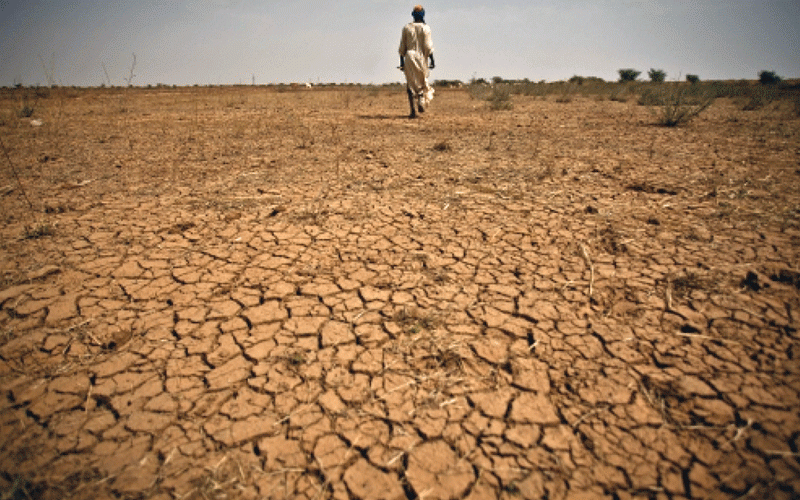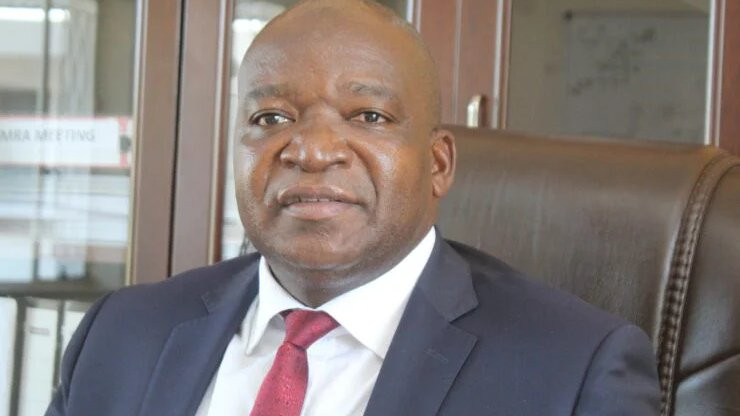
ALTHOUGH global goals should not be treated in isolation, even in their integrative and collaborative nature, Sustainable Development Goal (SDG)12 has proved to be quite problematic and a handful for many countries.
It is one of those global goals which seems scary to talk about because it provides instant accountability checks and not anyone would want to lie about it. This is the goal, which is about doing everything right and responsibly, mining responsibly, feeding and management of food waste responsibly, minimising food losses, managing environment and responsible energy production. In short, SDG12 provides the ecological governance and stewardship test.
It is an open secret that many countries have not passed the accountability test in terms of how they manage national resources, be it household food stocks, energy and power, water resources, grain reserves, minerals and agricultural production, among others. This also includes improving the lives of people and the environment by doing business responsibly, rather than doing business as usual.
Many countries have been caught up in a litany of unsustainable patterns of consumption and production, which are the root cause of the global crisis of climate change, biodiversity loss and pollution, among others. Some countries manage their resources as if there is no tomorrow, or as if no one would come after them. These countries are irresponsible in many ways, for instance, by degrading natural landscapes without rehabilitation, unregulated and unsafe mining practices, post-harvest losses, poor management of food waste, overeating or overexploitation of resources.
If countries continue along the destructive development path, the earth’s finite resources will be depleted and disappear and they would not be able to sustain livelihoods for future generations.
Countries need to be good examples, in improving resource efficiency, reducing waste, minimise pollution and shape a new circular economy. If natural resources are depleted, then production would be endangered. Using more resources than what a country generates is dangerous, while neglecting value chains and additions would lead to food waste and materials being shipped out in their raw and unprocessed state, disadvantaging a country’s economy in the process.
Nations should strive to produce their own goods and services so that business is transactional and reciprocal. Above all, countries need to invest in the culture of spending within their means, especially regulating domestic material consumption.
While natural resources are a blessing, too much dependence on them would put more pressure on fragile ecosystems and impact on human health, food systems, water resources and the economy at large. Although food waste and losses are a global problem, they are realised more in developing countries due to lack of appropriate technologies for harvesting, processing, drying or cooling systems including failure to manage mycotoxins. Therefore, food waste and losses have impact on the environment, social and economic consequences with some ending up generating greenhouse gas emissions in the process.
- Govt incentive divides teachers
- Construct fireguards around your property
- Construct fireguards around your property
- COP26 a washout? Don’t lose hope – here’s why
Keep Reading
While SDGs are designed to contribute to agenda 2030, talking about climate change is not enough to drive local actions on SDGs. There are still some scientists who continue to believe that addressing climate change only needs the scientific approach, which is hardly the case.
Yes, indeed, climate change is more scientific than anything else, but in reality and practice, it is more than science alone.
Furthermore, while climate change is always easy to talk about and difficult to solve, some SDGs are not always talked about because they remain difficult to unpack, hence SDG voices appear missing in action. Unfortunately, the majority who always refer to agenda 2030, do not even know what it means, hence it is just a parrot’s parody.
SDG12 still remains critical as one of the universal goals which promotes voluntary consumer action by ensuring universal access to information for sustainable lifestyles.
Sustainable lifestyles include using energy saving gadgets, water conservation, empty-plate syndrome to avoid throwing away leftovers by eating what you can finish, using smart energy technologies like solar power, drip irrigation, taking natural resources as finite not as infinite, regulate income spending and being accountable. Paying for the services incurred by the government departments and ministries is key to drive SDG12, including mainstreaming minerals sold by the government into the national economy, which shows responsible management of the country’s resources.
SDG12, like other global goals operates according to targets, for instance, by 2030, achieve the sustainable management and efficient use of natural resources.
This is the area where many governments have dismally failed sustainability tests by taking national resources as family businesses. SDG12 also emphasises on the reduction of food losses along production supply chains, including postharvest losses. In this regard, the quantities of food lost during harvesting, packaging, transporting and processing need to be taken into consideration by employing efficient methods that minimise significant losses.
SDG12, also encourages large companies and multinationals to practice sustainable processes to integrate in their business reports sustainability reporting, which is the disclosure and communication of environmental, social and governance goals that include the companies’ progress towards them. These cannot be wished away, companies and organisations should strive to come first on this one.
SDG12 puts much emphasis on the need for people everywhere to have relevant information and awareness for sustainable lifestyles which are in harmony with nature. This is significant as many organisations, multinationals and governments have played hide and seek with nature for quite a long time. While over exploiting natural resources, mortgaging them, without auditing land, minerals mined, explored and unexplored has become the norm everyone connected wants the bite of the cherry.
This discussion is not about foregrounding SDG12 as just difficult in that it cannot be managed, the folly and pitfalls of this global goal is that it can be abused, disregarded and taken for granted and this becomes the most difficult part.
- Peter Makwanya is a climate change communicator. He writes in his personal capacity and he can be contacted on: [email protected]






